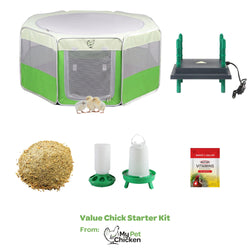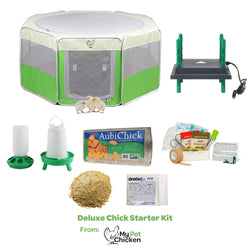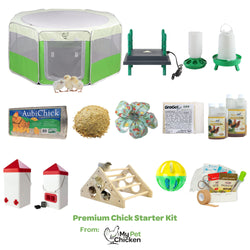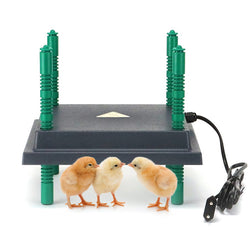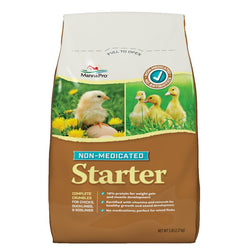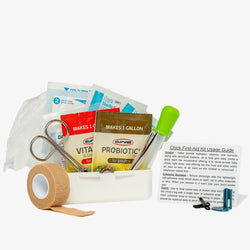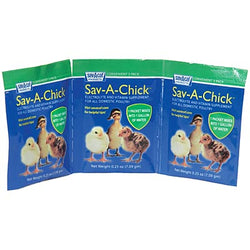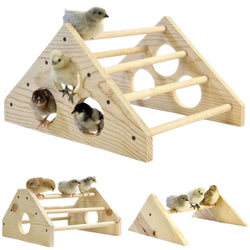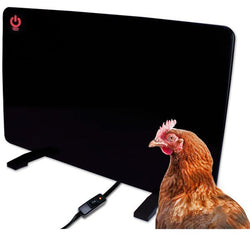What biosecurity should I practice to protect my flock from AI and other illnesses?
Back to blog
Good question! Most illnesses or even infestations (such as mites or worms) are contracted when your birds are exposed to other birds, either directly or indirectly. For that reason, there are simple steps you can take to reduce the chances of exposure and keep your flock healthy.
- Use common sense and restrict access to your birds and to their area. It's fun to have chicken keeping friends, but remember that allowing visitors to your flock that have been exposed to other birds is one of the main ways illnesses and infestations can get passed from one flock to another
- Before and after working with your birds, simply wash your hands with regular soap and water (antibacterial soaps are no more effective than regular soaps), preferably followed by a disinfectant. An alcohol-based hand sanitizer gel is an effective disinfectant.
- Clean, then disinfect, all new equipment that comes into contact with birds or their droppings, and when the equipment gets soiled from use, clean it again.
- Dedicate a special pair of shoes for use when working with your chickens, or clean your shoes with disinfectant before and after working with your flock. Why? Remember, you can carry things in on your shoes, and you don't want to bring any illnesses home from the feed store, the trip to the park to feed the ducks, your friend's flock or anywhere else.
- Don't share tools or equipment with other poultry owners unless you are willing to thoroughly clean and disinfect those tools for every use.
- Make sure you buy your birds from a reputable hatchery or dealer, preferably one that is NPIP certified (like us, of course!).
- Always quarantine any new birds you acquire from the rest of the flock. While this isn't an issue with day-old baby chicks purchased from major hatcheries here in the US, like ours, it is important when acquiring older birds, particularly rescues -- and even those older birds you may purchase from us!

